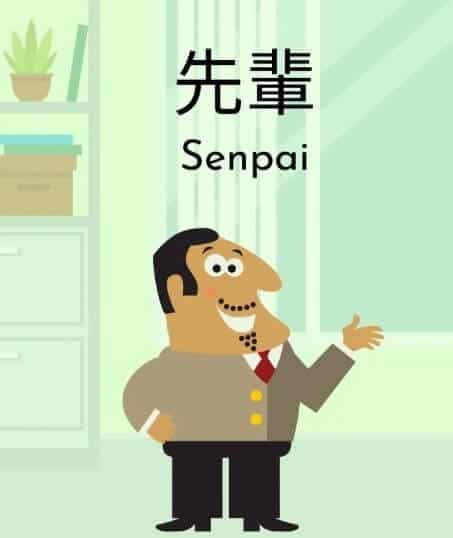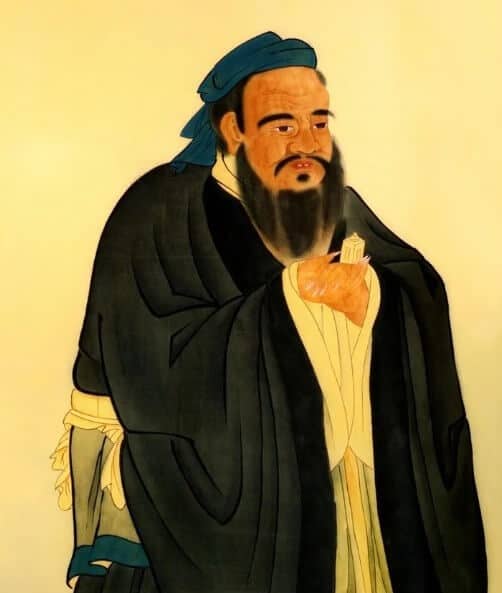Here’s the meaning of Senpai and Kouhai. Check it out!
"Senpai" and "kouhai" are integral concepts in Japanese culture, reflecting hierarchical relationships based on experience or age.
"Senpai" refers to a senior or mentor, while "kouhai" denotes a junior or protégé. These terms permeate social, educational, and professional settings, establishing expectations and guiding interactions.
Meaning of Senpai And Kouhai
What Is The Meaning of Senpai?
Senpai is a Japanese word that has two kanji letters 先輩 and the first kanji letter (先) “Sen” can mean future, old, or first, while the second kanji letter (輩) “Pai” means father, companion, or mentor.
Since kanji letters are ideograms the meaning of Senpai can differ greatly depending on the context it’s used in.
The most acceptable English meaning of the title Senpai is a tutor or a veteran. Basically, a person who’s older and much more experienced in a specific academic field or official position can be referred to as Senpai. For example a graduate, senior official, etc.

However, Senpai isn’t a title that’s applicable to everyone because it’s a title that must be earned and not forced upon someone to refer to another person. Just because a person is older than you doesn’t mean they immediately become your Senpai.
In addition, nobody can call themselves Senpai just because they deem themselves old and experienced.
It’s up to the other person or people to recognize someone as their Senpai. For instance, a person who learns how to sew can call their mentor a Senpai but it’s not up to the mentor to force their students to address them as Senpai.
Furthermore, a person can also be referred to as Senpai without having to teach anyone anything. If someone looks up to you as a renowned and respectable person they can still call you Senpai.
What Is The Meaning of Kouhai?
Kouhai is the opposite word of Senpai and it has two kanji characters 後輩. The first kanji character (後) “Kou” can mean successor, heir, or junior, and the second kanji character (輩) “Hai” is a common suffix in Japanese.
The proper meaning of Kouhai in the English Language can mean “freshman” or “junior”. To put it simply, Senpai is a word that’s used to address someone who’s senior to you in age, position, and experienced person while Kouhai is the word that’s used to refer to someone who’s a junior and inexperienced person.

Similar to how a Kouhai refers to their senior as Senpai, the Senpai also can refer to their junior as Kouhai. However, a Senpai isn’t obliged to address their junior as Kouhai and can refer to them by their name.
It’s also common for a Senpai to call their Kouhai using nicknames as a sign of showing love and affection.
Like how Senpai is a title that must be earned, Kouhai is also a title that must be earned and one cannot simply refer to themself as a Kouhai just because they’re young and inexperienced.
One person can only become a Kouhai when they’re under the supervision of a Senpai. For example, a new basketball player becomes a Kouhai once they’re training under a basketball coach who’s the Senpai in this case.
The Origin Of Japanese Words Senpai and Kouhai
It’s believed that the history and origin of words like Senpai and Kouhai were widely used between the 17th and 18th centuries.
The use of Senpai and Kouhai was influenced by a couple of factors during the time like religious beliefs and traditional Japanese familial values.
Confucianism was a widely practiced belief in China during ancient times and it was introduced to Japan between the 7th and 9th centuries. However, it was Neo-Confucianism commonly practiced in Japan during the early 1600s.
One of the key beliefs of Confucianism is to show the utmost respect towards one’s parents and elders.

Filial piety is even practiced very much right now in Japan as it’s deemed extremely important to treat the elders with respect in the Japanese culture. As a result, the tradition of using Senpai and Kouhai became prevalent across Japan.
During the Confucianism period in Japan, it was believed that the father was the main figure of a family and the control of running the house remained with him. This made the father the Senpai and the family property would be owned by him as well.
Once the father passes away, the property would be inherited by the eldest son and he would then become the leader of the family.
Anyone under the Senpai would ultimately become Kouhai as in this case the father’s children or the elder brother’s siblings once the father is no more. Another factor that influenced the Senpai and Kouhai tradition were Koshusei which means leader of the family system.
This was a similar practice to Neo-Confucianism ideology but it also indicated the hierarchical positions within a family.
The Relationship Between Senpai and Kouhai
If anything, the relationship between a Senpai and Kouhai must be more understanding than anything else. A proper and healthy relationship between a Kouhai and Senpai must be as follows:
- The Senpai must be more understanding towards a Kouhai and willing to teach them anything.
- It’s also the responsibility of the Senpai to help the Kouhai whenever necessary, especially if they’re a new learner.
- A Senpai shouldn’t be too controlling, overly strict, and arrogant because this would cause the Kouhai to be nervous and not perform their duties.
- It’s also the Senpai’s job to make sure that all of the Kouhai treat each other equally without any bullying or arguing.
- A Kouhai must be obedient to the Senpai and perform all the duties accordingly.
- He/She must respect the Senpai and not interrupt while the Senpai is giving orders.
- A Kouhai is obliged to never go against what the Senpai has ordered and must be attentive during sermons delivered by the Senpai.
How Are Senpai and Kouhai Used In Japan?
One crucial fact about Senpai and Kouhai is that these words are suffixes in the Japanese language. This means that the words Senpai and Kouhai come right after the names of a person and in English, they’re written after a person’s name using a hyphen.
For example, a Kouhai addresses their Senpai by using their name and -Senpai, like “Suzuki-senpai”. Similarly, a Senpai addresses the Kohai by using their first or last name with the suffix -kun like “Hiroto-Kun” or “Himari-kun”.
Although this is what the Japanese traditions stipulate, it’s an acceptable norm in Japan to rather use Senpai and Kouhai as they’re instead of using a person’s name before the suffixes.
The terms Senpai and Kouhai are popularly used in schools and workplaces. When a child newly joins a school, the students in the higher grades are the Senpai of that particular child and all other kids in the child’s grade as well.
These children will eventually become the Senpai of the kids who would later join the school.
Similarly, in the workplace when a person has been working over a long period of time than you then they’re the Senpai and you’re their Kouhai. All the other employees who have joined after a senior official will also be the Kouhai as well. However, you won’t notice everyone referring to their senior officials as Senpai and vice versa.
Senpai and Kouhai In The Japanese Entertainment Industry
The term “Senpai” has mostly appeared in anime and manga series and that’s where most of us have come across the word as well.
After anime, the word Senpai crossed great lengths when members started making eccentric content, and maybe that’s why you’re here to know what Senpai means.
Senpai is a common term used in anime and manga because most anime and manga series focuses on a young audience who are either in school, academy, or even practicing martial arts by a renowned master.
These instances have created a need for a master or a superior thus the anime characters refer to them as Senpai.
Meanwhile, Kouhai isn’t quite popular as Senpai because a Senpai can have several subordinates or students and it isn’t practical to refer to all of them as Kouhai because it would cause confusion.
To find out what an ideal relationship between a Senpai and Kouhai would be like you can watch some intriguing anime series like Jujutsu Kaisen, My Senpai is Annoying, Itazura na Kiss, Bokura wa Minna Kawaisou.
What Is The Meaning of Senpai and Kouhai: FAQs
What exactly does Senpai mean?
Senpai is a Japanese word that can have a plethora of meanings like a mentor, predecessor, senior official, etc. It’s a title that’s used to refer to someone who’s older than you and someone who you look up to. The word Senpai became quite popular after it appeared throughout manga and anime. It’s also a title a person should earn and not force others to call them Senpai.
What does it mean when someone calls you Kouhai?
Kouhai is a Japanese word that means junior, or successor in English. It’s the opposite word of Senpai which means mentor or master. When someone calls a person Kouhai it means they’re the junior of that said person. This could mean a junior at the workplace, school, or even in a training academy.
Does Senpai mean crush?
Senpai is a Japanese term that means mentor or senior. The word grew popular when it started featuring in anime and manga and several people misunderstood that the word meant a crush or love. Some even started romanticizing or sexualizing the relationship between a Senpai and their Kouhai. However, the word is used to refer to someone who stands at a higher position.




